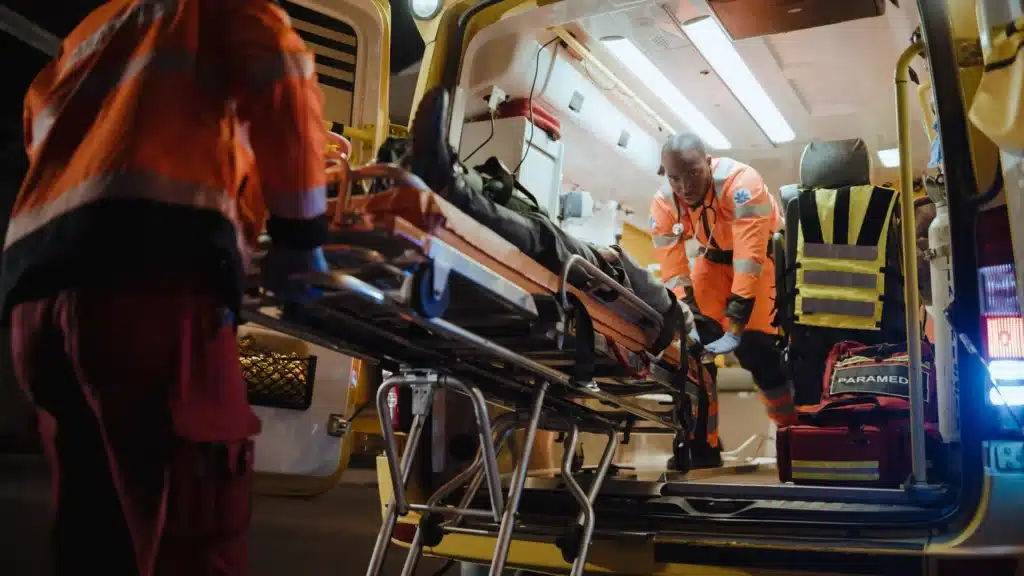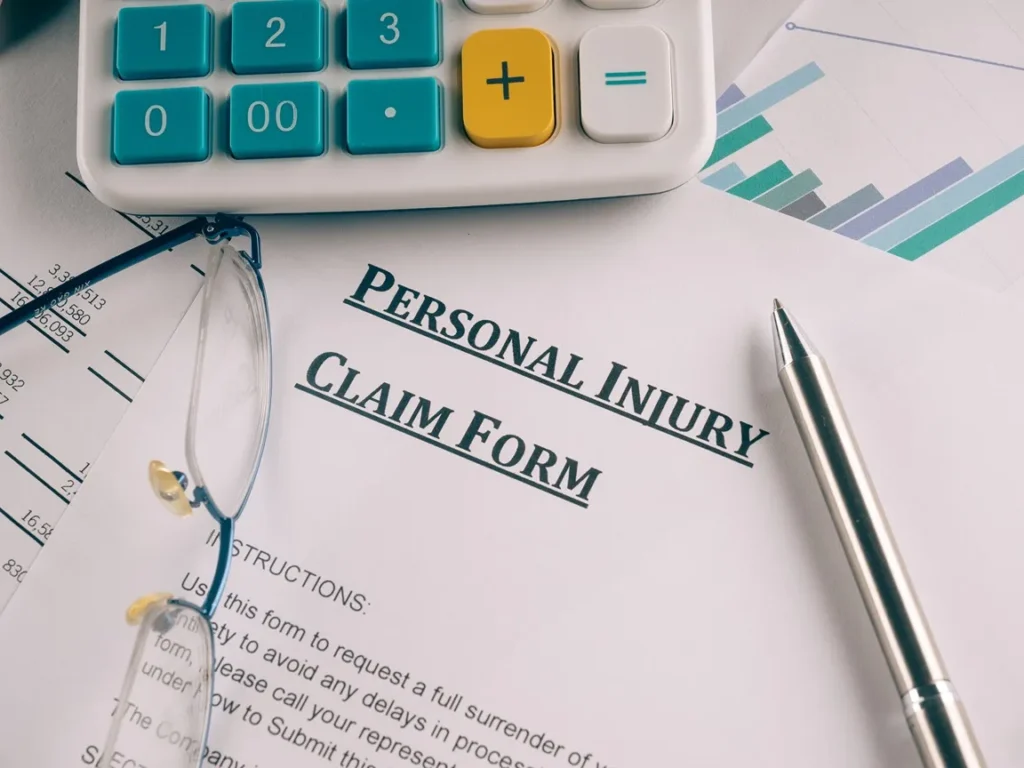
At Cesar Ornelas Injury Law, we focus on helping victims of poisoning accidents get the justice and compensation they deserve. Our experienced legal team is committed to providing personalized support and guidance throughout the legal process.
Don’t delay in taking action. Contact Cesar Ornelas Injury Law today for a free consultation at 210-957-2103. Let us assist you during this challenging time and work towards securing the compensation you need to rebuild your life.
Common Types of Poisoning Accidents in Carlsbad
Poisoning accidents in Carlsbad can happen in various ways, each carrying serious health risks. Knowing these common types helps in preventing them and ensuring a quick response:
- Household Chemical Poisoning: Often involving children under five, this type results from exposure to cleaning products, detergents, and other household substances. Their bright packaging can attract young children, leading to accidental ingestion or contact.
- Prescription Medication Overdose: Adults and teenagers are at risk of accidental overdoses or misuse of prescription drugs, leading to severe health consequences. This includes opioid overdoses, which are a growing concern.
- Carbon Monoxide Poisoning: Known as the “silent killer,” carbon monoxide is a colorless, odorless gas that can be fatal if inhaled in large amounts. Faulty heating systems or indoor use of generators often cause these incidents.
- Food Poisoning: Consuming contaminated food or beverages can lead to foodborne illnesses, with symptoms ranging from mild discomfort to severe dehydration and hospitalization.
- Alcohol and Drug Poisoning: Excessive consumption of alcohol or recreational drugs can lead to poisoning, affecting both physical and mental health.
- Industrial Chemical Exposure: Workers in industrial settings may face exposure to hazardous chemicals, leading to acute or chronic health issues. Proper safety measures and equipment are vital in these environments.
- Pesticide Poisoning: Contact with or ingestion of pesticides, often used in gardening and agriculture, can cause serious health problems.
- Heavy Metal Poisoning: Exposure to metals like lead or mercury, often found in older buildings or certain industrial processes, can lead to long-term health effects.
- Animal Bites and Stings: Venomous bites or stings from animals such as snakes or insects can introduce toxins into the body, requiring immediate medical attention.
Recognizing these common types of poisoning accidents helps people take steps to avoid exposure and stay safe. Being aware and informed is key in reducing the chances of these dangerous incidents happening.
Recognizing Symptoms of Poisoning
Identifying the symptoms of poisoning is crucial for ensuring timely medical intervention and minimizing potential health complications. Symptoms can vary widely depending on the substance involved and the method of exposure. Common signs to look out for include:
- Gastrointestinal Issues: Nausea, vomiting, diarrhea, and abdominal pain are often early indicators of poisoning, especially in cases involving ingestion.
- Respiratory Distress: Difficulty breathing, coughing, or wheezing may occur if the poison is inhaled or affects the respiratory system.
- Neurological Symptoms: Confusion, dizziness, headaches, seizures, and loss of consciousness can signal the nervous system’s involvement.
- Skin Reactions: Rashes, itching, redness, or burns may appear if the poison comes into contact with the skin.
- Cardiovascular Changes: Irregular heartbeat, chest pain, or low blood pressure can indicate the poison’s impact on the heart and blood vessels.
- Visual and Auditory Disturbances: Blurred vision, ringing in the ears, or temporary loss of sight or hearing might occur.
In severe situations, poisoning can cause serious health issues, like falling into a coma or even death. It’s critical to get medical help right away if you notice these symptoms. By understanding and recognizing these signs, individuals can quickly seek treatment and avoid long-term health problems.
Steps to Take After a Poisoning Accident

- Assess the Situation: Quickly determine the type of exposure—ingestion, inhalation, skin contact, or injection—and identify the substance involved.
- Contact Emergency Services: Call 911 if the person is unconscious, having difficulty breathing, or experiencing severe symptoms. For non-emergencies, contact the Poison Help line at 1-800-222-1222 for professional guidance.
- Follow Immediate First Aid Measures:
- Inhalation: Move the affected person to fresh air immediately. Ensure the area is well-ventilated.
- Skin Contact: Remove contaminated clothing and rinse the skin with water for 15 to 20 minutes.
- Eye Exposure: Flush eyes with running water for at least 15 to 20 minutes.
- Ingestion: Do not induce vomiting unless directed by a professional. Keep the person calm and still.
- Gather Information: Note the time of exposure, the substance involved, and any packaging or labels. This information is crucial for medical personnel and legal proceedings.
- Seek Medical Attention: Even if symptoms are not immediately apparent, consult a healthcare professional to evaluate potential risks and receive appropriate treatment.
- Document Everything: Take photos of the scene, the substance, and any visible injuries. Keep a record of medical visits, treatments, and communications with healthcare providers.
- Consult a Personal Injury Attorney: Legal representation can help you gather evidence and understand your rights. Attorneys guide you through the complexities and ensure you seek compensation for your suffering.
- Notify Relevant Authorities: Report the incident to local health departments or regulatory agencies if the poisoning is due to a defective product or negligence.
- Preserve Evidence: Keep any containers, packaging, or receipts related to the toxic substance. This can support your claim in a legal case.
By following these steps, you can safeguard your health and protect your legal rights after a poisoning accident. A skilled attorney can help you navigate the legal process and ensure you receive the compensation you deserve.
Can I Take Legal Action if the Poisoning Accident Occurred on Public Property?
Yes, you can take legal action if a poisoning accident happens on public property. However, these cases are often more complicated because they involve government entities. When such an accident occurs in places like parks, schools, or government buildings, it’s crucial to find out if negligence or a failure to maintain safe conditions caused the incident.
To make a claim, you need to prove that the responsible public entity didn’t keep the area safe or failed to warn the public about possible dangers. This might involve showing that they knew about the hazardous condition but didn’t take steps to fix it.
It’s important to know that claims against government entities have special procedures and shorter time limits, known as statutes of limitations, compared to other personal injury claims. Working with an experienced attorney is essential to navigate these unique rules and ensure your claim is filed correctly and on time.
By taking legal action, you might be able to recover compensation for medical expenses, lost wages, and other damages related to the poisoning accident, helping you handle the aftermath and move forward.
Establishing Liability in Poisoning Accidents
Proving liability in poisoning accidents can be challenging, but it is essential for obtaining compensation. To establish who is responsible, you need to show that someone’s carelessness or wrongful actions caused the harm. Here are the main steps to follow:
- Identifying the Responsible Party: Determine who is at fault, whether it’s a manufacturer, property owner, employer, or another party. This involves examining the circumstances of the poisoning incident and identifying any lapses in safety or regulation.
- Gathering Evidence: Collect critical evidence such as medical records, witness statements, photographs of the scene, and any relevant documentation of the toxic substance. This information is vital in demonstrating the connection between the exposure and the resulting harm.
- Demonstrating Negligence: Show that the defendant breached a duty of care owed to the victim. This means proving that the responsible party failed to act as a reasonable person would under similar circumstances, leading to the poisoning.
- Establishing Causation: Connect the negligent actions to the victim’s injuries, proving that the poisoning was a direct result of the defendant’s breach of duty.
- Consulting Experts: In many cases, expert testimony from medical professionals, toxicologists, or safety specialists may be necessary to support the claim and explain the effects of the toxic exposure.
By following these steps and working with knowledgeable attorneys, victims can create a strong case to hold those responsible accountable. This approach helps them seek the compensation they deserve for the suffering and losses they have endured.
Can Multiple Parties Be Held Liable for a Single Poisoning Accident?
Yes, sometimes more than one party can be responsible for a single poisoning accident. This can happen when different factors and people contribute to the incident. For example, if a poisoning accident is caused by a faulty product, both the company that made the product and the one that sold it might be responsible. Similarly, if a property owner doesn’t keep their property safe and a contractor is also careless, both can be held accountable.
To figure out who is responsible, a detailed investigation and collection of evidence are needed. A skilled personal injury attorney can help identify all the parties at fault, making sure each one is held accountable for their part in the accident. This approach increases the chances for victims to get compensation for their injuries and losses. By filing claims against all responsible parties, victims can better cope with the financial and emotional effects of the poisoning accident.
Compensation for Poisoning Accident Victims

- Medical Expenses: Covering costs for hospital visits, medical treatments, medications, and ongoing care related to the poisoning incident.
- Lost Wages: Compensation for income lost due to the inability to work during recovery or treatment.
- Rehabilitation Costs: Expenses for physical therapy or rehabilitation services needed to regain health and functionality.
- Travel Expenses: Costs incurred for traveling to and from medical appointments.
Non-economic damages address the intangible impacts of poisoning accidents, including:
- Pain and Suffering: Compensation for the physical pain and emotional distress endured due to the poisoning.
- Emotional Distress: Recognizing the psychological impact on victims and their families, including anxiety, depression, and trauma.
- Loss of Enjoyment of Life: Compensation for the diminished ability to enjoy daily activities and life experiences.
In some situations, victims might qualify for additional compensation known as punitive damages. These are awarded when the responsible party acts with extreme carelessness or intentional misconduct. Punitive damages serve as both a punishment for the wrongdoer and a warning to prevent similar actions in the future.
Knowing all the types of compensation available can help victims and their families manage the financial and emotional challenges that come with poisoning accidents. Working with a seasoned attorney is essential to guide you through this complicated process and ensure every possible option for compensation is considered.
Statute of Limitations
In New Mexico, there’s a time limit for filing personal injury and wrongful death claims, known as the statute of limitations. This deadline is critical because it sets the period within which you must take legal action after an accident or injury. For personal injury claims, like poisoning accidents, you generally have three years from the incident date to file a claim. If the injury wasn’t obvious right away, the clock might start ticking from when you discovered the injury.
For wrongful death cases, you usually have three years from the date of death to file a claim. It’s essential for victims and their families to act quickly to avoid losing their right to compensation. Missing this deadline means you lose the chance to take legal action, no matter how strong your case is.
Getting in touch with a Carlsbad personal injury attorney as soon as possible can help ensure all necessary legal steps are taken on time. An experienced attorney will guide you through the legal process, help gather evidence, and file claims promptly, allowing you to focus on recovery and seeking justice.
How Cesar Ornelas Injury Law Can Help You

When you choose Cesar Ornelas Injury Law, you gain a team that will work tirelessly on your behalf to achieve the best results. We understand the challenges you face, both emotionally and financially, which is why we operate on a contingency-fee basis—you only pay if we win your case. To discuss your legal options without any financial pressure, reach out for a free consultation. Call us today at 210-957-2103.




